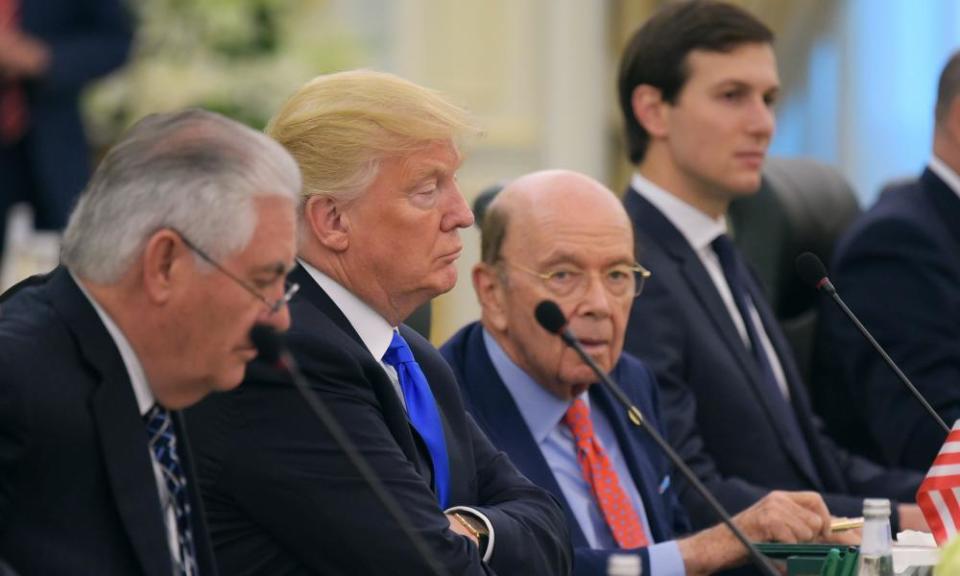Human rights activists criticize US praise for lack of Saudi Arabia protests
US commerce secretary Wilbur Ross suggested no protesters was a sign of Saudi Arabia’s goodwill, but laws there strictly forbid any demonstrations

The US commerce secretary Wilbur Ross’s praise for the lack of protests during Donald Trump’s visit to Saudi Arabia has been criticized by civil rights activists who pointed out that protesting in Saudi Arabia is illegal.
Ross travelled with the US president to Saudi Arabia in the first stage of his first international tour since taking office. Speaking with CNBC on Monday morning, Ross said there was “no sign of” protesters and seemed to suggest this was a sign of the country’s goodwill towards the US.
“There was not a single hint of a protester anywhere there during the whole time we were there,” Ross said. “Not one guy with a bad placard.”
Thousands of people are expected to protest Trump’s appearance in Brussels on Wednesday, but there was no sign of dissent in Saudi Arabia.
“There was not a single effort at any incursion, there wasn’t anything,” Ross said. “The mood was a genuinely good mood.”
But Adam Coogle, Middle East researcher at Human Rights Watch, said “anyone who follows the situation in Saudi Arabia will not be surprised at all” by the lack of protesters.
“Protesting is a serious offence in Saudi Arabia. It’s been de facto criminalised for many, many years, and specifically criminalised since 2011,” Coogle said.
“The stakes for protesting are extremely high. No one wants to sit in jail for ten years because they protested Trump.”
A 2016 US state department report on “human rights practices” in Saudi Arabia specifically notes that the “government categorically forbids participation in political protests or unauthorized public assemblies”.
“The most important human rights problems reported included citizens’ lack of the ability and legal means to choose their government; restrictions on universal rights, such as freedom of expression, including on the internet, and the freedoms of assembly, association, movement, and religion; and pervasive gender discrimination and lack of equal rights that affected most aspects of women’s lives,” the state department wrote.
In an October 2016 report, the United Nations Human Rights Office of the High Commissioner found that “children involved in demonstrations have been tried and sentenced, including to death, by the specialized criminal court” in Saudi Arabia.
The lack of protest is unlikely to set the tone for the rest of the president’s tour. Trump travels to Europe on Wednesday, where he is guaranteed to face protesters. Women’s March Rome is holding a rally against the president on Tuesday, ahead of Trump’s visit to Rome and Vatican City.
“There is outrage regarding the illegal Muslim ban, the global gag rule on women’s health, his appalling choices in his cabinet, his appalling views on climate change, and his denigration of journalists and the free press,” said Elizabeth Farren, one of the organizers of the rally.
“We are genuinely concerned about the authoritarian tone that his administration has taken.”
A day later thousands of people are expected to attend a “Trump not welcome” march, organized by dozens of activist organizations, in Brussels.
“This protest march is directed against Trump and his billionaire cabinet,” the group’s website says.
“These past months, Trump caused outrage all over the world: dividing and excluding people, denying climate change, intimidating the media [and] phasing out solidarity. We stand united in saying ‘No!’”

